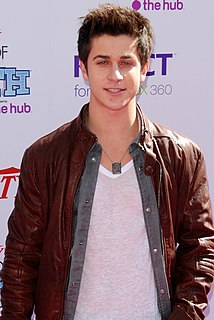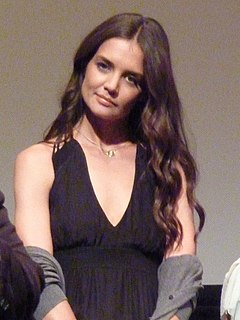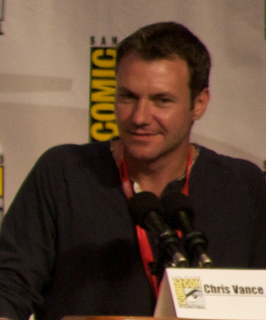A Quote by David Henrie
Knowing what thought process goes into constructing a line helps an actor know how to deliver that line because you understand the intention behind the writing.
Related Quotes
The line-by-line, sequential, continuous form of the printed page slowly began to lose its resonance as a metaphor of how knowledge was to be acquired and how the world was to be understood. "Knowing" the facts took on a new meaning, for it did not imply that one understood implications, background, or connections. Telegraphic discourse permitted no time for historical perspectives and gave no priority to the qualitative. To the telegraph, intelligence meant knowing of lots of things, not knowing about them.
Hazel had read enough books to know that a line like this one is the line down which your life breaks in two. And you have to think very carefully about whether you want to cross it, because once you do it’s very hard to get back to the world you left behind. And sometimes you break a barrier that no one knew existed, and then everything you knew before crossing the line is gone. But sometimes you have a friend to rescue. And so you take a deep breath and then step over the line and into the darkness ahead.
As an actor, I never really had a strategy. I just take projects, as they come. It all comes down to the writing, at the end of the day, for me. I don't care if it's a two-line cameo or the lead of the thing, as long as the project has some weight behind the writing and it's interesting and I think people will enjoy it.



































